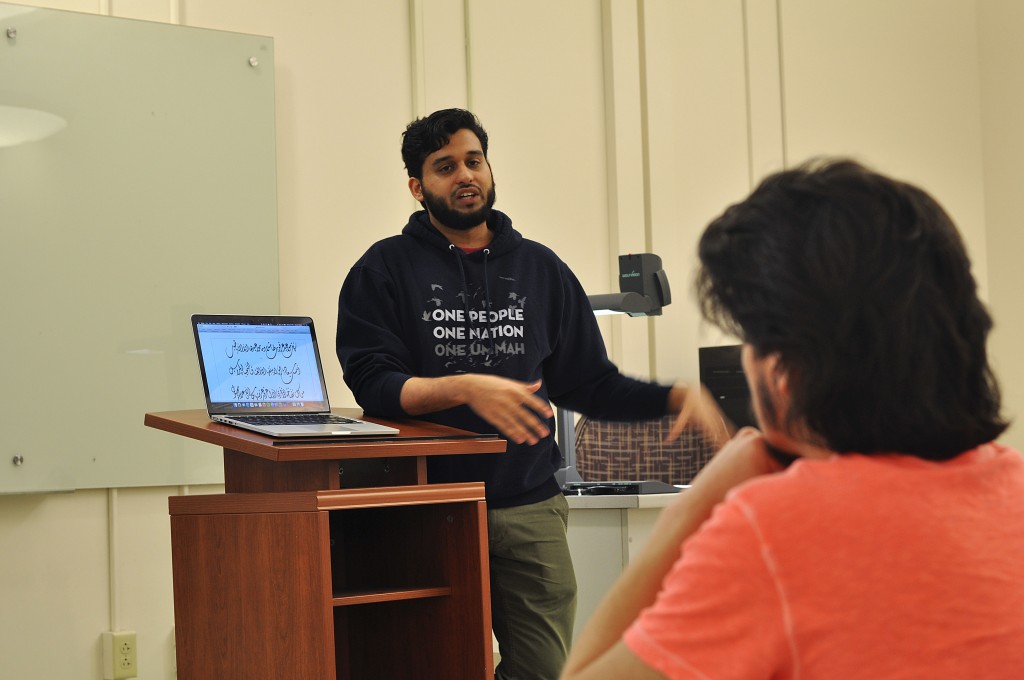
In an effort to combat negative stereotypes, the Muslim Students Association (MSA) hosted a weeklong series of events to bring a taste of Islamic history and culture to campus.
For every day of Islamic Awareness Week, a different activity was designed to relate to an aspect of Islamic ideologies, with the intention of educating non-Muslims on the religion. Activities included a fast-a-thon, a tournament to aid Islamic refugees and Hijab 101 to discuss why Muslim women wear headscarves.
“It’s really important to change this image that is portrayed of Muslims,” said Sarah Khan, the president of the MSA and a senior majoring in philosophy, politics and law. “We want to reach out to as many people as possible to bring awareness.”
The week began with guest speaker Imam Anas Shaikh from the Islamic Organization of Southern Tier, who discussed the role of Moses and Jesus in Islam. The MSA, which previously hosted an interfaith Shabbat dinner with BU’s Hillel, believed the lecture was important because Moses intersects both Judaism and Christianity, so non-Muslim participants would be able to relate.
According to Khan, the organizers made an effort to make the events informative and appealing to students from all backgrounds.
“Last year it was really successful, but mostly Muslims on campus came,” Khan said. “We tried to get ideas from other MSAs because the whole point of an Awareness Week is to reach out to the non-Muslims on campus.”
Tuesday’s fast-a-thon invited students to take part in a daylong fast. Similar to the Muslim practice during the holy month of Ramadan, participants were asked to not eat or drink from dawn until dusk.
“You’re not just abstaining yourself from food, but other desires — like lying, cheating and badmouthing,” Khan said. “You’re trying to exercise patience throughout the day.”
Michelle Wen, one of 20 non-Muslim fast participants and a sophomore majoring in neuroscience, said she did not anticipate how hard fasting would be.
“I thought it would be any regular day, I usually wait till dinnertime to eat but I didn’t factor in the drinking water part,” Wen said. “There was this dust in your throat and you can’t get rid of it.”
Other events included an Arabic calligraphy workshop on Wednesday, and on Thursday, female participants were encouraged to don a hijab, or headscarf, for the entire day and then share their experience during a Hijab 101 panel, in which a group of women who wore the headscarf spoke about their experiences.
“It’s more a concept of modesty,” Khan said. “We wanted to dispel ideas of oppression.”
The week will end with a “Hoops for Syria” basketball tournament, with part of the proceeds going to support Syrian refugees and part to the winners, and a dinner banquet on Saturday evening. Khan said the organization hopes to raise $1,000.
Karen Ouyang, a senior majoring in mathematics, said the week’s events enabled students to gain an understanding of the faith to which not everyone has exposure.
“I feel like people who follow religion are more resilient to adversity,” Ouyang said. “They can always fall to a god for troubles.”


